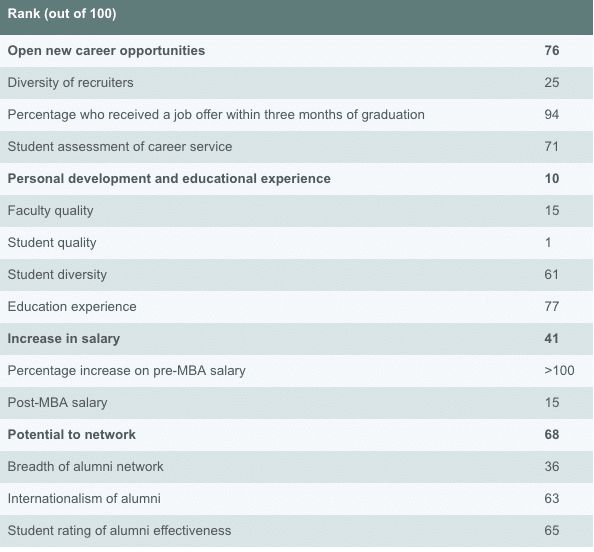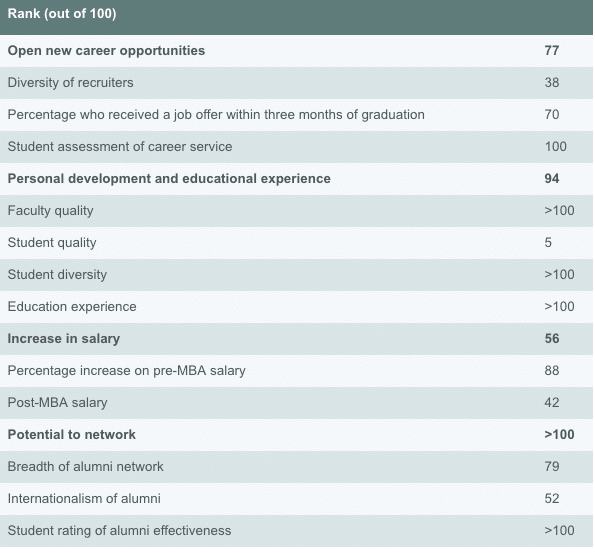Melbourne Business School’s MBA program has been ranked the best in Australia, and one of the top 10 in the world for networking, by The Economist’s Which MBA? report.
The report listed the top 100 MBA programs at business schools around the world on criteria including career opportunities, personal development and salary improvement.
This year’s report saw Melbourne Business School rise from 27 to 23 worldwide, and take the top spot in the Asia and Australia region.
Deputy Dean Paul Dainty congratulated the School community on the achievement.
“We have consistently risen in these rankings in recent years, which is a marvellous result that reflects the hard work of our staff as well as our students,” he said.
Melbourne Business School’s place came after ranking highly in program elements like providing new career opportunities, personal development and educational experience and an increase in salary for graduates. The school also ranked high for networking, which Mr Dainty said grew naturally out of the fact that students stayed connected with the School after graduating.
“There’s a special sort of community around Melbourne Business School. I think it comes from the fact that people here are truly committed to and engaged with what they do in a way that doesn’t always occur at other institutions,” he said.
“Partly it’s because we’re lucky to have amazing individuals here, and partly it’s about what we do as a School to foster a culture of respect, collaboration and passion. We are working hard to make Melbourne Business School a place that people want to be. That includes students, staff and alumni.”
Melbourne Business School was joined on The Economist’s Which MBA? report by fellow Australian institutions, UQ Business School and Macquarie Graduate School of Management, who ranked 38 and 79 respectively.


For the sixth time in the past seven years, the University of Chicago’s Booth School of Business ranked first, regaining first place from neighbouring Northwestern’s Kellogg School of Management which slipped to number two this year.
While the ranking was dominated by US schools, this year’s top ten included one from Europe, IESE in Spain. IESE, at the University of Navarra, moved up 11 places to sixth, mainly because of a big boost in the average salary for its graduates to $123,000 and a job-placement rate of 99%.
According to The Economist Editor Jane Shaw, visa restrictions and unfriendly political environment meant that the US faced increasing competition from European programs that offer high-quality teaching and shorter, cheaper courses to a growing number of international students.
The Economist’s Which MBA? report was created after The Economist compiled feedback data from MBA students all over the world, and weighed each element according to the average importance given to it by students surveyed over the past five years. These include career opportunities, personal development/educational experience, earning potential and networking potential.










